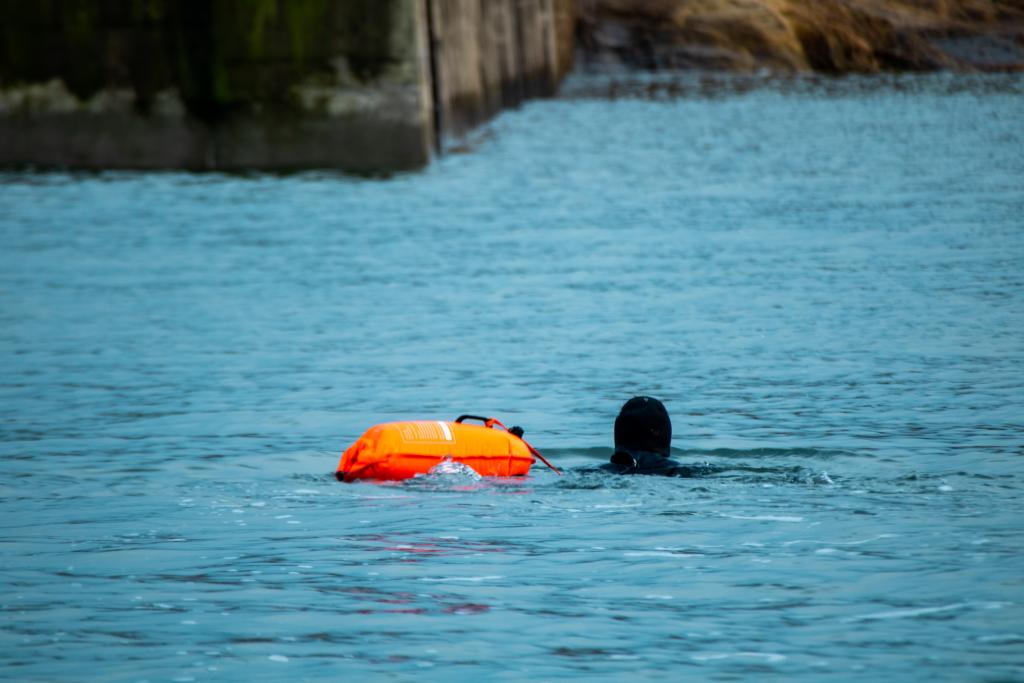
Grace Barnes, Paralegal in the Family Team, has been sharing her knowledge and experience of cold water swimming. After a client expressed an interest in wanting to ‘try something different’ which would get them outdoors and boost their mental health, they decided to take up this activity on Grace’s recommendation. She has now written the following article to inspire others to consider the benefits.
Taking time out to prioritise our mental health is important for everyone, regardless of what you are going through in your life. Whether you’re a Wim Hof fan or not, cold water immersion has really taken off in the last few years. Since moving back to Cornwall in 2020 and escaping the heat of Dubai (the sea was like a bath!), I have fallen hook, line and sinker for wild/open water swimming. With numerous swimming spots available in the South West, including beaches, rivers, and quarries, there’s no shortage of locations to explore.
Dipping Your Toes: Cold Water Immersion for Beginners
If you’re new to cold water immersion, starting with a cold shower can be an excellent introduction. Begin slowly with 10 second sessions, gradually increasing as you grow accustomed to the cold. While I prefer swimming in the sea all year round, I limit my winter swims to 3-5 minutes to avoid overexposure to the cold. It’s important not to be deceived by the numbing sensation, as this may mask the true chilliness – listen to your body and exit the water if needed. The sea is coldest between January and March so I would recommend starting in the summer and try to keep going as far into the winter as you feel able to.
The Winter Gear
In the colder months, the sea can reach chilling temperatures, necessitating some protective gear. Wearing wetsuit boots and gloves can safeguard the extremities, which are particularly vulnerable to the cold. Avoid dunking your head in the winter, and when you finish your swim, quickly change into multiple layers and savour a hot drink to warm up – relishing in the post-swim buzz.
So…what are the benefits?
A ‘good’ stress
Cold water immersion activates our body’s natural stress response, leading to the release of adrenaline. While stress is often perceived negatively, short periods of stress can actually be beneficial for our bodies. Our bodies recognise cold water as a potential threat and this induces a reaction in our stress response – the most beneficial being that our blood vessels rapidly constrict and dilate (in some parts of the body doubling in size) which is all very good for our cardiovascular health.
In recent years, a huge body of research has shown that a short period of stress can actually be a good thing. Right now, scientists are looking at how cold water can affect everything from immune response to stress hormones, to fatty deposits that clog up your arteries.
Enhanced Immunity
Evidence is mounting that cold water swimmers are more likely to avoid, or experience milder symptoms to certain illnesses and infections, particularly respiratory related complaints.
Mood Boost
Studies show that cold water immersion increases chemicals such as dopamine, serotonin and b-endorphin levels in our bodies and this provides the ‘buzz’ and lifts our mood. An area of research currently being undertaken shows that the cold water could decrease inflammatory responses, helping with conditions like depression and rheumatism.
Embrace the cold
As a self-proclaimed cold water “addict,” I encourage you to give this invigorating activity a try. For me, part of the buzz is the ‘open water’ element and being outside in nature – and I mainly swim in the sea. Start with warmer swims in the summer and gradually progress to colder waters. For safety, consider swimming with a companion and staying within your depth, especially if you’re concerned about cramps.
Wild swimming clubs are popular in Cornwall, Devon and Somerset so you can enjoy getting out into the water as well as making new friends and enjoying the camaraderie of like-minded individuals. Here are some local clubs you could try out:
- Blue Balls Cold Water Swimming club in Cornwall (Loe Beach, Helford River, Gyglly Beach) Blue Balls Cornwall
- Devon Wild Swimming Devon Wild Swimming
- Cornwall Owls (Open Water Leisure swimmers) Cornwall OWLS
- The Bluetits Chill Swimmers – thebluetits.co
If you prefer swimming in solitude, these are the spots that our Family team at Stephens Scown have tried and tested:
- Budleigh Salterton beach in south Devon
- The River Barle at Simonsbath on Exmoor
- Swanpool beach, South Cornwall
- Frenchman’s Creek, Helford, Cornwall
- Porth Nanven, St Just, Cornwall
- River Parrett, Cockle Moor, Somerset
- Cleveland Pools, Bath, Somerset
Cold water swimming holds an array of mental and physical benefits, making it an appealing and enjoyable activity for anyone seeking a refreshing and revitalizing experience. Embrace the opportunity to connect with nature, boost your mood, and prioritise your well-being.
Always be responsible, particularly when swimming alone.
Consult your doctor before cold water swimming.
